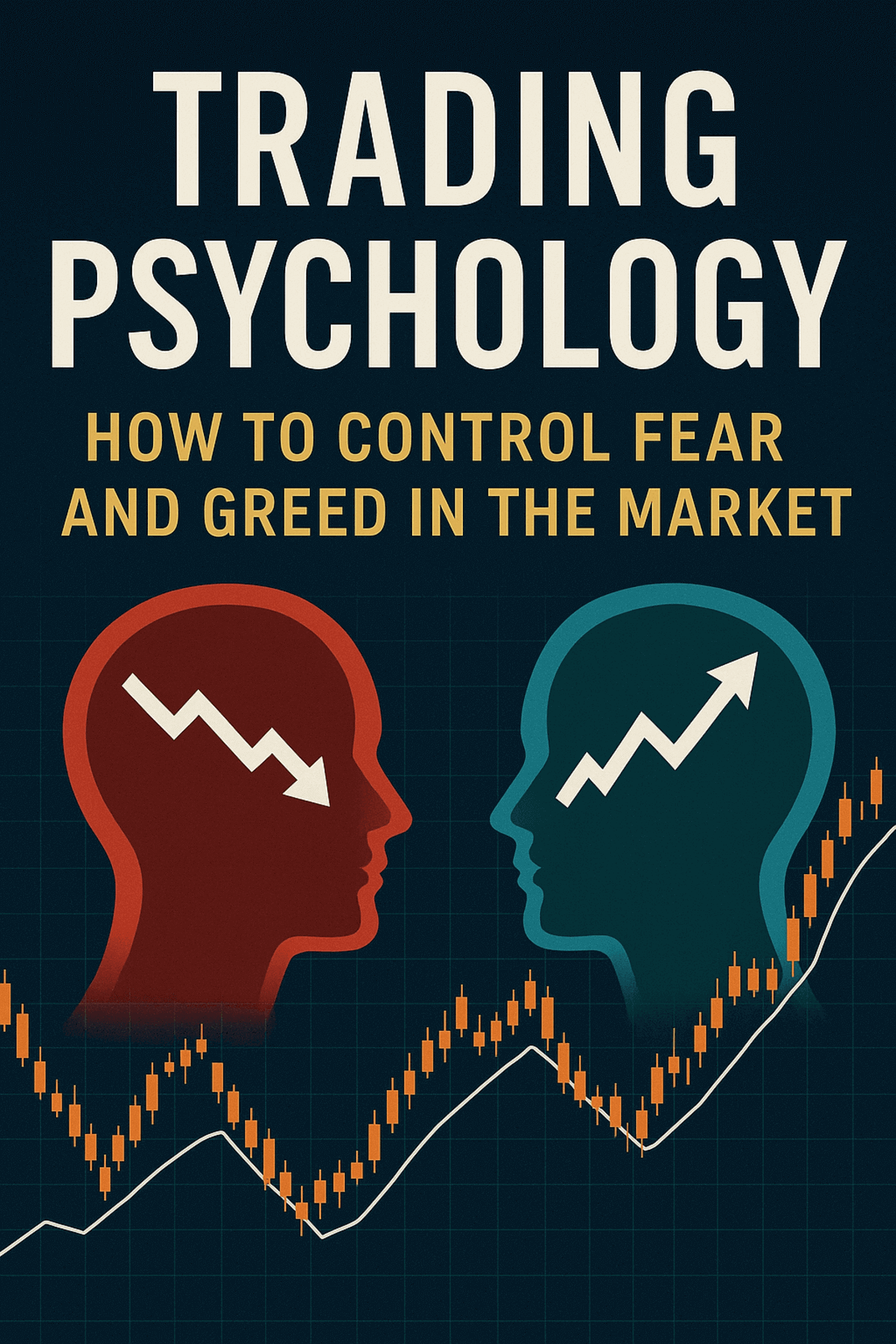Every trader, whether beginner or pro, faces this inner battle. The truth is, the market doesn’t just test your strategy; it tests your mind. You might have the best setup in the world, but if you can’t control trading psychology, your account will tell the story.
Let’s break down what these emotions are, how they affect your decisions, and most importantly — how to control them like a professional trader.
Understanding Trading Psychology
Trading psychology is the mental side of trading — the thoughts, emotions, and behaviors that drive your decisions when money is on the line. It’s not about indicators or charts; it’s about how you react to them.
Most traders lose not because their strategy is bad, but because they can’t follow it consistently:
- They close trades too early out of fear.
They add more risk out of greed.
They revenge trade after a loss.
The Role of Fear in Trading
Fear comes in many forms:
- Fear of losing money
- Fear of missing out (FOMO)
- Fear of being wrong
Fear can cause you to exit trades too soon or skip good setups entirely.
For example, a trader who just lost two trades might hesitate to take the next one — even if it fits the plan perfectly. That’s not strategy; that’s fear making decisions.
How to Manage Fear
- Trust your system. If you’ve backtested your strategy, let the numbers guide you, not emotions.
- Use stop-losses wisely. Knowing your maximum risk helps calm the mind.
- Focus on process, not outcome. You can’t control the market, but you can control how you trade.
The Power (and Danger) of Greed
Greed is that voice that whispers, “Hold a little longer,” or “Double the lot size — this one looks sure.” It starts small — a few winning trades, a boost of confidence — then suddenly, you’re over-leveraging and chasing more profits than your plan allows.
How to Control Greed
- Set daily or weekly profit targets. Once you hit them, stop trading.
- Stick to your position size. Don’t increase risk just because you’re on a winning streak.
- Remember: the market rewards discipline, not emotions.
The Emotional Trading Cycle
Every trader goes through an emotional cycle that looks like this:
- Optimism – “This setup looks great!”
- Euphoria – “I’m unstoppable!”
- Anxiety – “Why is it going against me?”
- Fear – “Should I close before I lose more?”
- Desperation – “I’ll add more to recover!”
- Capitulation – “I give up…”
- Hope – “Maybe one more trade will fix this.”
Understanding this cycle helps you recognize when emotions start taking control — so you can stop reacting and return to logic.
Building the Mindset of a Pro Trader
Professional traders don’t remove emotion; they manage it.
Here’s what sets them apart:
- They trade with a plan. Every entry, exit, and risk is predefined.
- They accept losses. Losing is part of the business — not a personal failure.
- They think long-term. One bad day doesn’t define their performance.
To trade like a pro, think like a business owner. Your edge is your strategy, and your emotions are your employees. If they start misbehaving, you must take charge.
Tools to Strengthen Your Trading Psychology
Here are a few practical tools that can help you develop mental discipline:
- Trading Journal – Record not just trades, but your emotions before and after each one. Patterns will emerge.
- Meditation or Deep Breathing – Helps reset your focus during volatile market conditions.
- Performance Review – Every week, review trades and emotions. Learn, don’t repeat.
You can even use tools like My Forex Pips Journal to log your trades and track how emotions affect your results.
Real-World Stats That Tell the Story
According to DailyFX research, over 75% of traders lose money not because their strategies don’t work, but because they lack discipline and emotional control.
A study by CFA Institute also found that consistent traders tend to spend more time reviewing their mindset than tweaking their indicators.
That means — mastering trading psychology is not an option. It’s the foundation.
Bottom line
The biggest market moves don’t start on charts — they start in the minds of traders who can stay calm under pressure.
If you can manage fear when others panic, and stay humble when others get greedy, you’ll always have the upper hand.
Trading is 20% strategy, 80% psychology.
Learn to control your emotions, and the profits will follow.
